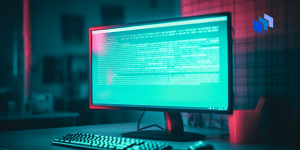What Does Common Access Card Mean?
A Common Access Card (CAC) is a smart card that serves as a standard identification for United States Active Duty Uniform Defense Personnel, including the National Guard and Selected Reserve, civilian employees of the United States Coast Guard (USCG), civilian employees of the Department of Defense (DoD) and other DoD and USCG contractor personnel. The card is used for physical access into buildings and other controlled spaces, as well as access to government defense computer systems and networks, and satisfies the requirement for two-factor authentication.
Techopedia Explains Common Access Card
The Common Access Card’s inception began in 1999 when Congress directed the Secretary of Defense to implement smart card technology with the aid of the Department of Defense. The said technology has greatly affected security, readiness and efficiency. CAC is also being used as a principal card in businesses as it can control and secure access to buildings, controlled spaces, computer systems and networks.
CAC employs two-factor authentication: the physical card and the card owner’s personal identification number (PIN). These two features allow rapid authentication and a security boost in terms of physical security and logic.
CAC can use any of the following technologies:
- Bar code
- Integrated circuit chip (ICC)
- Magnetic strip
- RFID technology
- Visual identification





